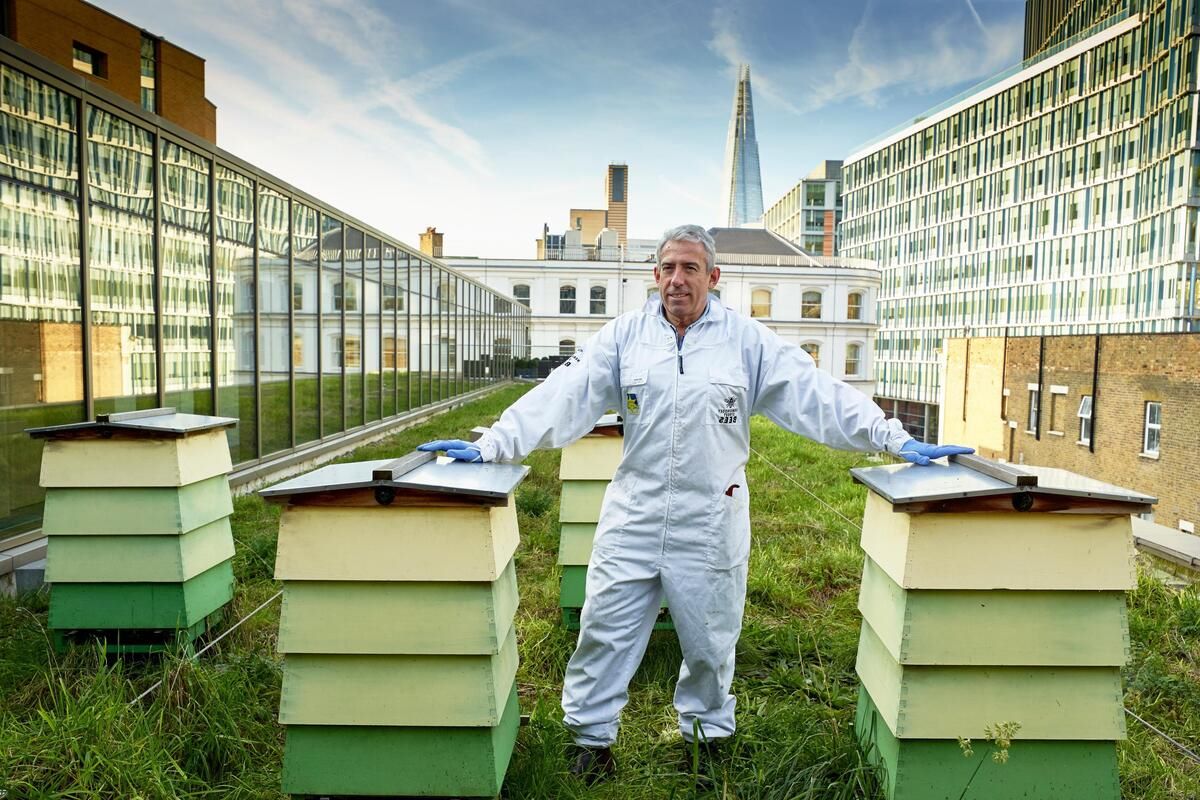Secret Rooftop Beehives Of New York

Have you ever wondered where honey comes from in a bustling city like New York? Believe it or not, some of the best honey in the city is produced right above your head. Secret rooftop beehives are scattered across the skyline, quietly buzzing away. These hidden gems not only provide delicious honey but also play a crucial role in urban agriculture. Beekeepers tend to their hives on rooftops of hotels, office buildings, and even schools. This unique setup helps support local ecosystems and offers a sweet treat for residents. Ready to learn more about these sky-high honey producers? Let's dive into the world of New York's rooftop beehives!
Secret Rooftop Beehives of New York
New York City buzzes with more than just people and traffic. High above the bustling streets, secret rooftop beehives thrive. These hidden gems contribute to urban agriculture and support local ecosystems. Let's explore some of these fascinating spots.
1. Waldorf Astoria
The Waldorf Astoria, an iconic hotel, hosts rooftop beehives. These bees produce honey used in the hotel's restaurants and spa. Guests can even purchase jars of this exclusive honey.
2. Brooklyn Grange
Brooklyn Grange, known for its urban farming, also keeps bees. Their rooftop hives produce honey sold at local markets. The bees help pollinate the farm's crops, ensuring a bountiful harvest.
3. The Whitney Museum of American Art
The Whitney Museum of American Art has rooftop beehives that support local pollination. The honey harvested here is used in the museum's café. Visitors can enjoy a taste of this unique urban honey.
4. One Bryant Park
One Bryant Park, a skyscraper in Midtown Manhattan, houses beehives on its roof. These bees contribute to the building's sustainability efforts. The honey produced is shared with building tenants and employees.
5. The High Line
The High Line, a popular elevated park, features beehives along its path. These bees help pollinate the park's diverse plant life. Honey from these hives is sometimes available at local events.
6. The Waldorf School of Garden City
The Waldorf School of Garden City maintains rooftop beehives as part of its educational program. Students learn about beekeeping and the importance of bees in the environment. The honey harvested is used in school activities and shared with the community.
7. The Cathedral of St. John the Divine
The Cathedral of St. John the Divine, one of the largest cathedrals in the world, has rooftop beehives. These bees play a role in the cathedral's environmental initiatives. Honey from these hives is sold to support the cathedral's programs.
8. The New York Times Building
The New York Times Building hosts rooftop beehives as part of its green initiatives. The bees help pollinate nearby plants and trees. Honey produced here is shared with employees and used in the building's cafeteria.
9. The Waldorf Towers
The Waldorf Towers, part of the Waldorf Astoria, also has rooftop beehives. These bees produce honey used in the hotel's dining services. Guests can enjoy this exclusive honey during their stay.
10. The Central Park Conservancy
The Central Park Conservancy maintains beehives in Central Park. These bees help pollinate the park's vast array of plants. Honey from these hives is sometimes available at Conservancy events.
The Buzz About Rooftop Beehives
Rooftop beehives in New York are more than just a trend. They help the environment, support urban agriculture, and produce local honey. These hidden gems show how nature and city life can work together. Beekeepers and enthusiasts are making a big difference in the city's ecosystem. They provide a safe place for bees and educate people about their importance. Next time you're in New York, think about the bees working hard above you. Maybe even try some local honey from a rooftop hive. It's a sweet reminder of how small actions can have a big impact. Rooftop beehives are a win for everyone—bees, beekeepers, and city dwellers alike. So, let's keep supporting these buzzing rooftop residents.

